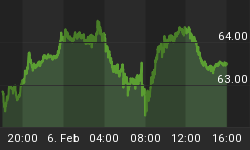Switzerland, as everyone knows by now, has slipped out the back door of the drunken orgy that is the modern financial system. And the other revelers are wondering if it's time to find their own clothes and start tiptoeing towards the exit.
Because the Swiss have such a big "mind share" in the world of finance, it's easy to forget how tiny their country actually is: Eight million people, a landmass of 40,000 square kilometers (less than half that of Virginia, for instance), and a few interesting but by no means essential exports like watches, chocolate, and pharmaceuticals. But in banking it's a behemoth. Traditionally the place where money ran to hide, whether gold stolen by Nazis, tax revenues stolen by kleptocrats or personal wealth stashed by reasonable individuals living in unreasonable countries, it has for centuries been as reassuringly -- and purposefully -- boring as an aging accountant.
In other words, the Swiss are purveyors of financial stability, which requires a rock-solid currency and predictable behavior. The franc, as a result, has for long stretches been the only fiat currency to hold its value versus gold.
But this attractiveness became a liability a few years back, when the euro's fatal flaws emerged and capital from the rest of the Continent started fleeing to Switzerland, spiking the value of the franc and threatening to price Swiss exporters out of global markets. What happened next is so well known that there's no need to repeat it here. But for those who would like a primer, see Absolutely everything you need to understand about what happened to the Swiss franc this week.
Now, with the Swiss having cut their (considerable) losses and retaken control of their monetary policy, citizens of the rest of the world are left to deal with the consequences of 1) their own stupid financial policies and 2) their equally-stupid (in retrospect) decision to bet on the Swiss abandoning centuries of tradition by allowing their currency to evaporate along with the other pieces of confetti that now pass for money. Examples of those consequences include:
-
Hedge funds and other institutions that bet -- with leverage -- on the franc depreciating alongside the euro. See Large Everest Capital hedge fund closing after Swiss franc losses.
-
Homeowners in other countries who for some reason took out Swiss franc-denominated mortgages. See Poland may help Swiss franc mortgage holders.
-
Cities in other countries that borrowed Swiss francs. See French municipal borrowers collateral victims of Swiss franc surge.
-
And big banks that couldn't execute trades fast enough to keep up with the franc's surge. See Barclays lost 'tens of millions' of dollars on Swiss franc moves.
And remember, the Swiss franc saga is just one of three major sucker punches to strike the world in the past few months, the other two being the dollar's spike and oil's collapse. Banks, hedge funds, governments and individuals around the world are on the hook for what might cumulatively amount to trillions of dollars of bad paper, with the interplay between these three pieces of volatility making a true accounting impossible until well after the fact.
Anyhow, some thoughts and questions re Switzerland:
Is it even possible to just surrender in a currency war?
That's effectively what the Swiss have done. From now on they'll run their monetary policy old-school, with stability once again the main goal. But what happens to their exporters, which make up a bigger part of their economy than almost any other country's? Will the result of keeping a strong currency in a weak currency world be an epic recession in which big swaths of its society cease to function because they're priced out of global markets? Or will Switzerland, after a period of adjustment, become an island of well-run tranquility in a sea of monetary chaos? This is a serious question and the answer isn't at all clear.
Does the eurozone need QE now that the euro has cratered?
The point of a central bank buying bonds with newly-created currency is to make money easier to borrow for its citizens. But a depreciating currency does the same thing and the euro is already down by about 20% in the past year. Everyone who has borrowed euros now gets to pay back their loans in cheaper currency and European exports are now far more attractive on the global market than in 2013. So once again it's possible that ECB chief Mario Draghi has gotten what he wanted just by talking, without actually having to do anything dangerous.
Or...is the euro beyond saving and about to collapse under the weight of its own contradictions, with upcoming Greek elections marking the end of the dream? And then what happens to the franc in the face of the resulting tidal wave of capital fleeing the imminent return of drachmas, lira and pesetas?
Will anyone ever trust a central bank again?
This of course is the big one because the entire global financial system, from governments' managing unfunded liabilities by borrowing effectively unlimited amounts of money, to corporations obscuring deteriorating fundamentals by repurchasing stock with borrowed funds, to leveraged speculators hiding trillions of dollars of derivatives exposure in plain sight because of a perceived central bank backstop, depends on the myth of central bank omnipotence. If the willingness and/or ability of the Fed, ECB or BoJ to step in and keep the party going is questioned, then it all stops just as quickly as did the Swiss franc carry trade. The difference being one of scale.















